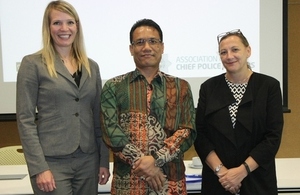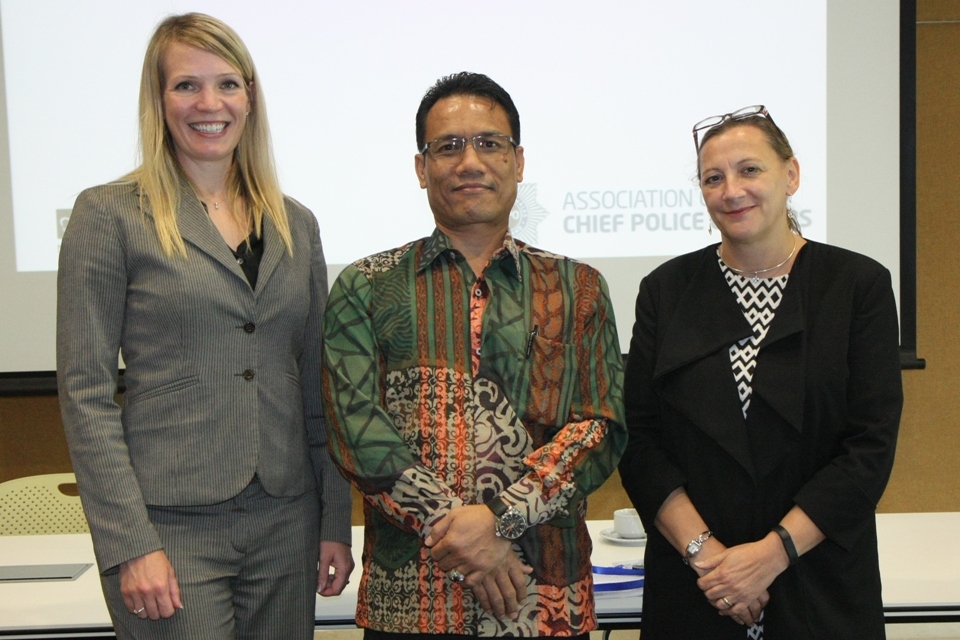NCA launches new initiative to protect children in Indonesia
The International Child Protection Certificate (ICPC) was officially launched on Thursday 5th March at British Embassy Jakarta.

ICPC Launch in Indonesia
The UK’s National Crime Agency (NCA), in conjunction with the British Embassy Jakarta, is launching a new weapon to combat the sexual exploitation and abuse of children in Indonesia by travelling British child sexual offenders.
The International Child Protection Certificate (ICPC) has been developed in the UK to target British nationals and residents who may be seeking to travel and work overseas in order to sexually abuse children.
An ICPC can only be issued following checks made against police information and intelligence databases. Its aim is to provide reassurance that staff employed in schools and voluntary organisations do not have a UK criminal record that makes them unsuitable to work with children.
The certificate is already being used in 73 countries around the world, including Thailand, Vietnam, the Philippines, Cambodia, Ukraine, Spain, Poland and Kenya.
NCA CEOP Command said:
Some sex offenders think they can lurk in the shadows by travelling abroad to carry out their crimes and will go to extraordinary lengths to present an outward appearance of respectability.
The ICPC puts that respectability under the spotlight. It is running successfully in several countries around the world, creating a huge barrier for British sex offenders who think it will be easier to commit their crimes abroad.
Introducing it to Indonesia is an important step forward. I look forward to continuing to work with the British Embassy Jakarta and schools in the area to expand and enhance this vital work, providing a united front against those with a sexual interest in children.
Deputy British Ambassador Juliet Maric said:
Child sexual exploitation is a serious issue for all countries. Protecting children is a vital responsibility. We are very pleased to have the opportunity to work with both our Indonesian and Australian colleagues in promoting the importance of child protection and to share UK expertise in this sector. Through the launch of the International Child Protection Certificate, we hope that awareness of the importance of protecting children will increase and become more effective. We will continue to strengthen our cooperation with Indonesia to prevent the exploitation of children.
Director for General Crime of Indonesian National Police Brig. Gen. Herry Prastowo said:
Violence against children is a serious matter that the handling needs to involve all parties including Police, Ministries, societies, NGOs and other relevant institutions. I am very grateful for this collaboration amongst government institutions and look forward to working together with our international partners in preventing violence against children.
The ICPC was officially launched on Thursday 5th March at British Embassy Jakarta.

NCA Int. Liaison for SEA Stephanie McCourt, Indonesian Police Commissioner Agung Yudha Wibowo Deputy British Ambassador Juliet Maric
Officers from the NCA’s Child Exploitation and Online Protection Command (CEOP) will also be leading several days of training in conjunction with the British Embassy Jakarta and the Australian Federal Police (AFP). The training will cover a range of issues and will be focused on best practice for investigating cases of child abuse and providing an introduction to interviewing victims of child abuse.
The ongoing engagement and training builds on partnership work to date in the region and in particular the work of the International Child Protection Network (ICPN). The network, which includes advisory panels of specialists from law enforcement, education, children’s charities and NGOs, shares understanding and best practice to help minimise the risks posed to children by adults with a sexual interest in them.